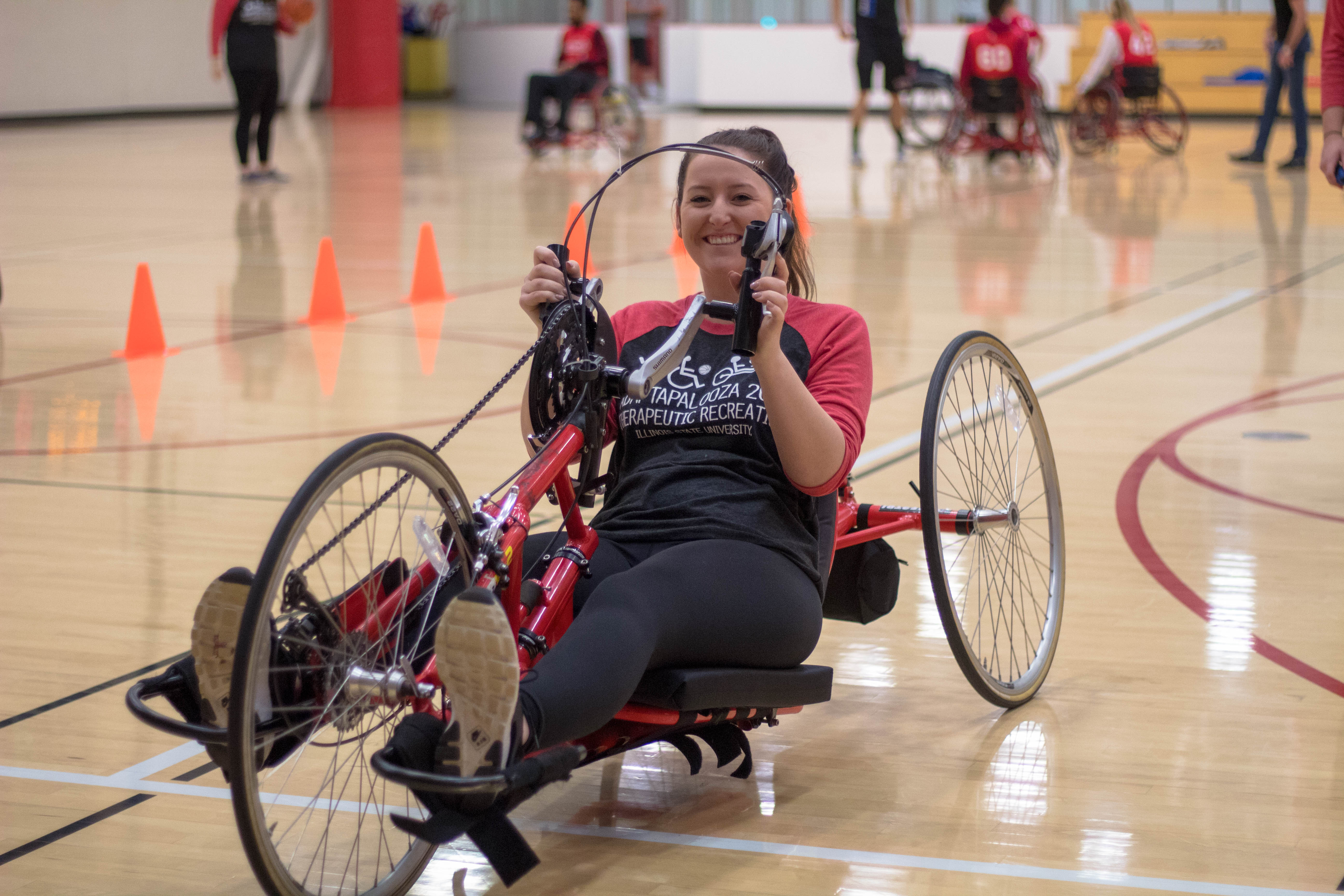
Therapeutic Recreation
Therapeutic recreation is a human service profession. Professionals typically work in a community or clinical setting. Clients include people who have a disability, injury, illness or other health condition. Using play and other activities, therapists create a healthy physical and social environment.
Students in this major use theory in the classroom and the real world by completing two internships. The major also offers opportunities to attend conferences, participate in clubs, and study abroad. These activities help students develop a professional network.
Faculty in therapeutic recreation have awards for teaching, research, and service. They also conduct and publish research as well as write industry-leading textbooks.
Why Study Recreation and Sport Management - Therapeutic Recreation?
Therapeutic recreation has an important role in health. Participating in recreation-based treatment programs helps people improve and maintain their health. Therapists plan and host activities that include arts and crafts, fine arts, sports and games, aquatics, and community outings.
More recreational therapists will be needed as the baby-boom generation ages. The Bureau of Labor Statistics predicts a 12 percent growth from 2014 to 2024 for the profession. This is faster than the average for all occupations.
The Illinois State Therapeutic Recreation program is accredited by the Council on Accreditation for Parks, Recreation, Tourism, and Related Professions.
The following is a 6 minute segment which explores advances in therapeutic recreation, showcases key issues impacting the practice of recreational therapy, and discusses the role of that NCTRC plays in protecting consumers and promoting excellence of the profession through the certification of recreational therapists.